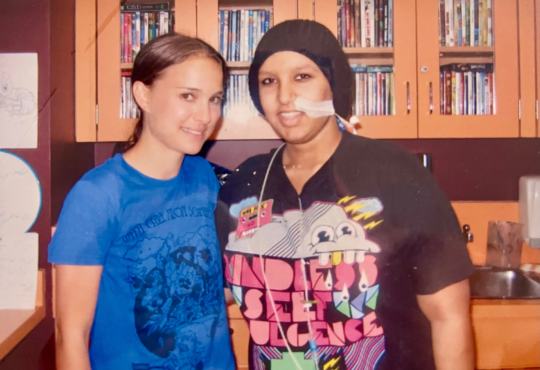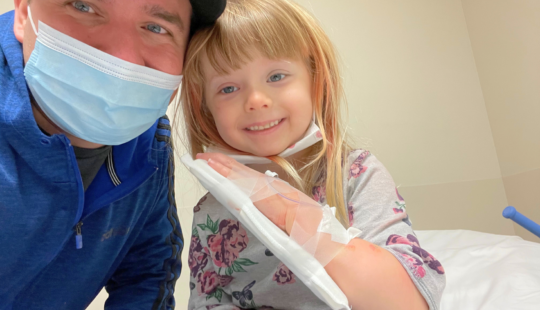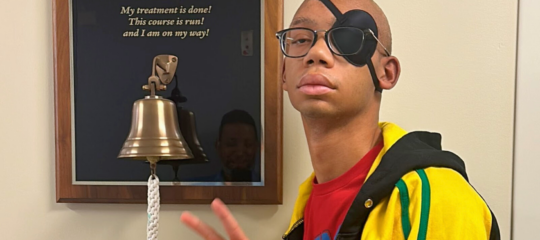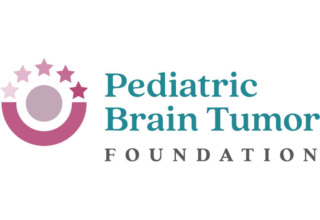
Living with a Glioma: Eight-Year-Old Mackensie is an Inspiration

Mackensie’s journey began in early 2018, just before her second birthday. Now an energetic eight-year-old third grader in Las Vegas, she has faced a path filled with medical challenges, surgeries, and treatments—facing each with remarkable courage and positivity.
A Curious Symptom
In February 2018, Mackensie’s mother, Melia, noticed something unusual: one of Mackensie’s eyes looked droopy. Initially thinking it was just a cold or a lingering symptom from a recent illness, Melia eventually took Mackensie to the hospital, where a series of tests revealed something far more serious.
“After a CT scan, the doctor told us Mackensie had swelling and lesions on her brain,” Melia recalls. “I was in shock. We were transferred to another hospital, and eventually, Mackensie was flown to Children’s Hospital in Los Angeles for further testing.”
Following weeks of testing and consultations with various specialists, Mackensie’s condition remained a mystery. One doctor suspected a tumor but couldn’t confirm it. For the next two years, Mackensie underwent numerous MRIs and doctor visits, all while continuing to live life as normally as possible.
An Elusive Diagnosis
Melia remembers the frustration of those years. “We didn’t have a clear diagnosis for so long. One doctor believed it was a tumor, but others weren’t sure. We went back and forth to LA every three months, constantly worrying about the cost and whether insurance would cover it.”
By the time Mackensie started kindergarten, her symptoms had worsened. An MRI at that time revealed significant brain swelling, and it was then that doctors finally confirmed she had a glioma located on her brain stem. Surgery was necessary to relieve the swelling, but the tumor could not be removed.
Living with a Glioma
“The surgery helped alleviate the pressure, but they told us that removing the tumor could kill her,” Melia explains. “So now, she lives with it. We treat her symptoms as they arise. Radiation and chemotherapy aren’t an option because of the tumor’s location.”
The surgery reduced the swelling, but Mackensie faced other challenges, including the deterioration of her vision due to the tumor’s pressure on her optic nerve. Eye surgery helped, and her vision has remained stable, but doctors warn it could worsen over time and she might lose her vision at some point.
A Resilient Spirit
Despite these hurdles, Mackensie continues to live life to the fullest. She’s a daredevil at heart, always eager to play and take part in new adventures. “She hit her head while playing last week and had to be put on concussion protocol. And because of the effects her medications have had on her teeth, she ended up having to have a tooth removed,” Melia says. But none of this stops Mackensie from enjoying her favorite activities, from dancing, drawing, and sewing to cheering on her older sister at sporting events.
Mackensie has also found joy in pageants. At age four, she won the title of Miss Little Clark County. “We try to make life fun for her, doing things like traveling and participating in community activities,” Melia says.
At school, Mackensie enjoys math, recess, and lunch with her friends. She has a 504 plan, which provides accommodations for her in class, including extra time during tests. “I tell my teachers and friends I have a 504. It feels good to be able to do that because I’m making good choices and advocating for myself,” Mackensie proudly shares, adding, “And I know what the word ‘advocacy’ means because I do phonics every single day.”
Support, Strength, and a New Purpose
For Melia, the experience of navigating Mackensie’s diagnosis reshaped her career. Inspired by her daughter’s journey, she earned a master’s degree in special education and now works with children with neurological disorders and their families. “I wanted to provide others the same guidance and support I sought during my own family’s ordeal,” she explains.
Melia’s passion for helping families extends beyond her work. “It can be challenging living in Las Vegas with a child who has special healthcare needs. But now that I’ve found a good network of doctors here, I share it with other families. Otherwise, many have to travel out of state for care, which is not always covered by insurance and is costly and disruptive,” she says.
Looking Ahead
Mackensie dreams of participating in more pageants and loves drawing and sewing. Recently she even won a medal at an art show.
When asked what advice she has for other families, Mackensie shares wisdom beyond her years. “Always advocate for your child when they’re getting a shot. Hold their hands to make sure they’re not stressed or anxious. And it’s always good to bring a stress toy to squish.”
If your family, or someone you know, has been impacted by a pediatric brain tumor diagnosis and is seeking support—whether emotional, financial, or medical—the Pediatric Brain Tumor Foundation is here to help. Visit https://curethekids.org/resource/support-for-families/ for valuable information and connections to a supportive community for every stage of the journey—from diagnosis to treatment and beyond. You can also contact the Patient Family Advocacy team by completing this brief form or emailing [email protected] any time.
Related Stories


Patrick’s Recovery Through Laughter, Learning, and Sheer Determination

A Circle of Support: The Kaczmarski Family’s Journey from Receiving to Giving Back
Related Updates

Traveling for Brain Tumor Treatments: How to Plan for Out-of-State or International Care
Traveling for brain tumor treatment can be overwhelming, but with the right preparation and support, it can also be a journey filled with hope and resilience.
The Pediatric Brain Tumor Foundation welcomes Day One Biopharmaceuticals’ renowned Dr. Samuel C. Blackman to its Board of Directors

